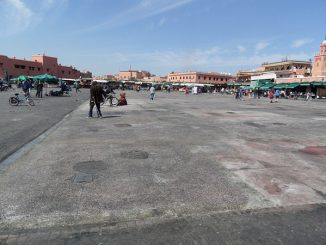
Tourism revenues fell by 33.2% or 11.1 Billion Dirhams (MMDH) at the end of the first six months of this year, according to the Directorate of Studies and Financial Forecasts (DEPF), part of the Ministry of Economy, Finance and Administrative Reform.
“The tourism sector, which experienced a decline in its value, fell by 7% in the first quarter of 2020, after an increase of 2.9% a year ago. Moreover, it is still experiencing significant declines in its revenue,” the DEPF said in its August economic note.
These revenues have totaled a 71.7% decline for the second quarter of 2020, a loss of 11.8 MMDH, continues the same source. It notes that the number of tourist arrivals fell by 63% at the end of June 2020 and that of overnight stays in classified accommodation establishments by 59%.
For the month of June, the number of overnight stays amounted to 68,199, down 97% in one year, says the DEPF, adding that a more favorable trend, although modest, is expected in the coming months, fueled in particular by the recovery of the local tourism market.
Indeed, from June 25th, the Moroccan authorities announced, in a second phase of lightening of the measures of sanitary containment, the opening of the tourist accommodation activity. However, the opening is conditioned by sanitary measures allowing, in a first stage, the exploitation of only 50% of the accommodation capacities, combined with the resumption of domestic flights in the Kingdom from the same date.
For the year 2020, the decline in the flow of international arrivals is estimated by the World Tourism Organization (WTO) between 60% and 80%, which will lead to a decline in global tourist spending between 800 and 1 trillion dollars, or -60% compared to the previous year.
In Morocco, the estimated impact of this crisis for this year is a 69% drop in tourist arrivals, a 60% drop in foreign exchange earnings and about 50% job losses. In order to limit the negative impact of this crisis on the tourism sector and to accelerate its recovery, a program contract was signed on August 3rd for the benefit of the sector, bringing together public and private actors at the national and regional levels in order to recover pre-crisis performance. The said program-contract, covering the period 2020-2022, aims with its 21 measures to give a strong boost to the sector and give it a new dynamic to accompany its recovery and transformation, through three major objectives, including preserving the economic framework and employment, accelerating the recovery phase and laying the foundations for a sustainable transformation for the sector.




Be the first to comment